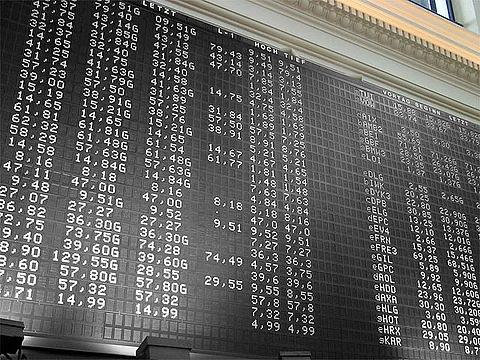
- Home
- NewsGram USA
- India
- न्यूजग्राम
- World
- Politics
- Entertainment
- Culture
- Lifestyle
- Economy
- Sports
- Sp. Coverage
- Misc.
- NewsGram Exclusive
- Jobs / Internships

Foreign direct investment is calculated to have fallen to U.S.$20 billion in the first quarter of this year, compared with $100 billion in last year’s first quarter, when China was in lockdown, according to The Wall Street Journal
Initial bounce-back growth in the aftermath of long lockdowns due to COVID-19 is fading as consumers draw back from spending and exports slump. Compounding the pinch is the slow collapse of China’s all-important real estate sector as well as the ongoing problem of accumulated local-government debt.
Beijing has stated it has no money to bail out local government debt due to overspending on COVID-19 mitigation. A massive infrastructure spending spree on the heels of the Great Financial Crisis of 2008 saw the construction of roads to nowhere, ghost cities, unoccupied tower blocks and unfinished theme parks.
Local governments have to deal with a debt hangover from years of profligate spending compounded by what is believed to be an 18% jump in health expenditure during COVID-19 and a 23% fall in revenue due to the real estate sector slump.
In the meantime, 2023 was supposed to be the “Year of Investing in China,” as Beijing has hailed it, but foreign investors aren’t buying it, not least because President Xi Jinping’s administration has shown every sign of being determined to make it harder to do business in China, not easier.
Following the implementation of a new counter-espionage law last month, the U.S. State Department advised Americans to reconsider travel to China due to “arbitrary enforcement of local law,” “exit bans” and “wrongful detentions.”
China’s economy grew just 0.8% in the second quarter compared with the first three months of the year, and more than a fifth of Chinese aged 16 to 24 are out of work
Open for business?
Li Qiang, China’s premier and second-highest official, has repeatedly reassured the foreign business community that China is “open for business” at the China Development Forum in March and again more recently in Tianjin at the World Economic Forum.
Reality suggests otherwise. The U.S. and China are at loggerheads over transfers of high technology and the materials used to manufacture semiconductor chips.
Meanwhile, China’s financial regulators have reportedly invited some of the world’s biggest investors to a rare symposium this week, three sources said, with the aim of encouraging investment into the world’s second largest economy.
The meeting, which is due to be held in Beijing on Friday, will focus on the current situation and challenges faced by U.S. dollar-denominated investment firms in China, Reuters reported.
“China’s decision making is as hidden from our view as it has ever been, but China’s economic weakness is obvious for all to see, even China’s leaders, which can’t help but be one source of the recent moderation in foreign policy and willingness to engage Washington,” Scott Kennedy, a China specialist at the Center for Strategic and International Studies in Washington, told the New York Times.
“The Chinese economy is clearly sputtering," said Eswar Prasad, professor of trade policy and economics at Cornell University who suggested that China required further stimulus and policy reform. The latter is unlikely to happen in any meaningful way, while Beijing has repeatedly hinted that it is unwilling to throw the kind of stimulus at the economy it has in the past.
“What we all expected was a consumption and service-led recovery. If that is sputtering, then there’s no engine left for the recovery," said Louis Kuijs, chief economist for Asia Pacific at S&P Global Ratings.
‘Targeted actions’
There are some signs that the U.S. is pressuring China to open up and talk at a time of economic weakness, perhaps sensing a vulnerability.
But on her visit to Beijing earlier this month, U.S. Treasury Secretary Janet Yellen was largely pragmatic, voicing concerns over market barriers for American firms operating in China.
She said Washington would “in certain circumstances, need to pursue targeted actions to protect its national security,” but disagreements over such moves should not jeopardize the broader relationship.
“We seek healthy economic competition that is not winner-take-all but that, with a fair set of rules, can benefit both countries over time,” she said.
Nationalist state tabloid the Global Times, in an uncharacteristically positive turn, editorialized at the time of Yellen’s visit that even though U.S. officials were downplaying any expectations from Yellen’s visit, “Chinese experts believe that one major point of significance of Yellen's trip is to keep high-level communication channels open, which may help bilateral relations walk out of their downward spiral.” ( RFA/NJ)
